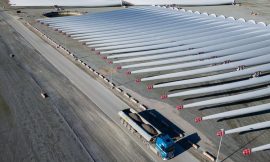Regulatory uncertainty is stiffling much-needed investment in residential housing, according to private market specialists Elkstone.
In its latest State of Private Markets Report Elkstone – which has invested in LetsGetChecked and Flipdish – said international investors are keen to deploy capital in European property but are not convinved they can get a return if they do so in Ireland.
“When we think about interest rates and the interest cost of debt associated with it, as well as inflation and increased costs that are associated with that in terms of development – in most areas across Europe, those costs would be pushed through to the end user and the development would still have the same kind of return expectation,” said Karl Rogers, chief investment officer at Elkstone.
“In this case, however, because only a portion of that goes through, the cost of the project gets increased and it goes outside of the range of institutional capital requirements – which helps create a slow up in the actual development itself,” he said.
Mr Rogers said the country was between a rock and a hard place in terms of trying to protect consumers while also trying to encourage enough development to ease housing costs.
We need your consent to load this rte-player contentWe use rte-player to manage extra content that can set cookies on your device and collect data about your activity. Please review their details and accept them to load the content.Manage Preferences
“Short term there would be more pain before the relief comes,” he said. “If there isn’t as much supply coming then the price is going to remain higher.
“If there was a situation where rental caps were taken away, those costs would be pushed through in the shorter term but more supply would be enabled. After a few years time that supply would catch up and should decrease the prices.”
The report also highlighted short-comings in other forms of infrastructure – in particular around energy.
However it said that while the moratorium on data centre development was a bottleneck, it was actually coming because Ireland was ahead of the global trend in terms of building this industry.
And, he said, the problem was creating opportunities in other ways.
“We need to increase the supply of the grid and we’re doing that through the likes of offshore winds,” he said. “So instead of capital going into developing demand assets, capital is going into the development of supply increasing assets.”
Meanwhile the Elkstone report highlighted a broader trend in the investment market, with larger ‘mega-funds’ increasingly drawing in more capital than smaller players. This was a consequence of higher risk aversion among investors.
“What that means for Ireland is that these mega-funds aren’t located here – so the very, very big funds aren’t located here,” Mr Rogers said. “The smaller funds aren’t getting as much funding – therefore it’s important that both the State funding continues as well as local, private capital.
“Otherwise they’re not getting the advantage of that international capital,” he added.




